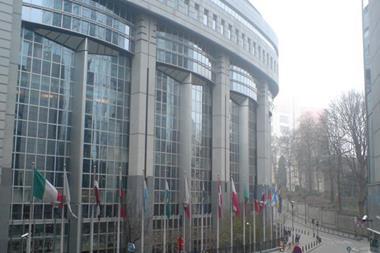European competition authorities are cracking down hard on companies that try to compete unfairly. A dangerous new trend for businesses is the move towards more private actions for damages
The UK’s competition regulator, the Office of Fair Trading (OFT), indicated in November last year that it wanted to improve the effectiveness of redress for consumers and businesses that suffered loss as a result of breaches of competition laws.
Philip Collins, OFT Chairman, said: 'An effective private actions system will enable consumers and businesses to obtain redress where they have suffered loss as a result of unlawful agreements or conduct.’
The OFT made a number of recommendations to strengthen the private actions regime, including changes to attorney fee structures and allowing representative bodies to bring action.
In March 2007 the consumer association Which? Issued the first ever representative action in the UK against JJB Sports following a decision from the OFT that JJB had infringed competition rules by participating in arrangements to fix prices of replica football shirts. The settlement in January saw JJB agree to pay £20 to each fan who joined the Which? Case, and fuelled the fire of debate about representative consumer actions in the UK.
Commenting on the settlement, Toby Starr, a partner at Starr & Partners, said: ‘Although the settlement should be seen as victory rather than defeat for Which?, the system as it presently stands appears unlikely to support an explosion of claims.’
According to Starr, the government’s decision to enact an opt-in system meant that of the approximately 1m potential claimants only around 500 joined the representative action. Additionally, there is currently only a limited number of designated bodies empowered to bring damages claims, which, said Starr, ‘restricted the real availability of this mechanism for consumers.’
“'An effective private actions system will enable consumers and businesses to obtain redress where they have suffered loss as a result of unlawful agreements or conduct.
Philip Collins, OFT Chairman
As it currently stands, European competition law is mostly enforced by competition agencies. Nevertheless, it does appear that the authorities in Europe are not adverse to private action to enforce competition rules, which has been a feature of US anti-trust law for over 100 years.
In 2005 the European Commission issued a Green Paper indicating it was in favour of facilitating private damages actions for breach of competition laws. European Competition Commissioner Neelie Kroes said: "Businesses and consumers in Europe have a right to damages if they have lost out as a result of the anti-competitive behaviour of others.’
Steve Kaufmann, chair of the litigation department at Morrison & Foerster, added that competition law is the area most likely to be exposed to group actions. He argued this was a result of the increased impetus from enforcement authorities in supporting private action as well as generally higher levels of activity in their own enforcement. The European Competition Commission has imposed its ten highest cartel fines in the last six years. In February this year, the Commission imposed a record 899m Euros fine on Microsoft after it failed to comply with an earlier antitrust order.
Private action has both positive and negative effects. The threat of enforcement is a distraction and expense for businesses, which inevitably pass the extra costs onto consumers. On the other hand, the positive effect, as the regulators see it, is more policing of the market place.
FOR A MORE IN-DEPTH LOOK AT TRENDS TOWARDS REPRESENTATIVE ACTION IN EUROPE SEE THE MAY ISSUE OF STRATEGICRISK.



















No comments yet